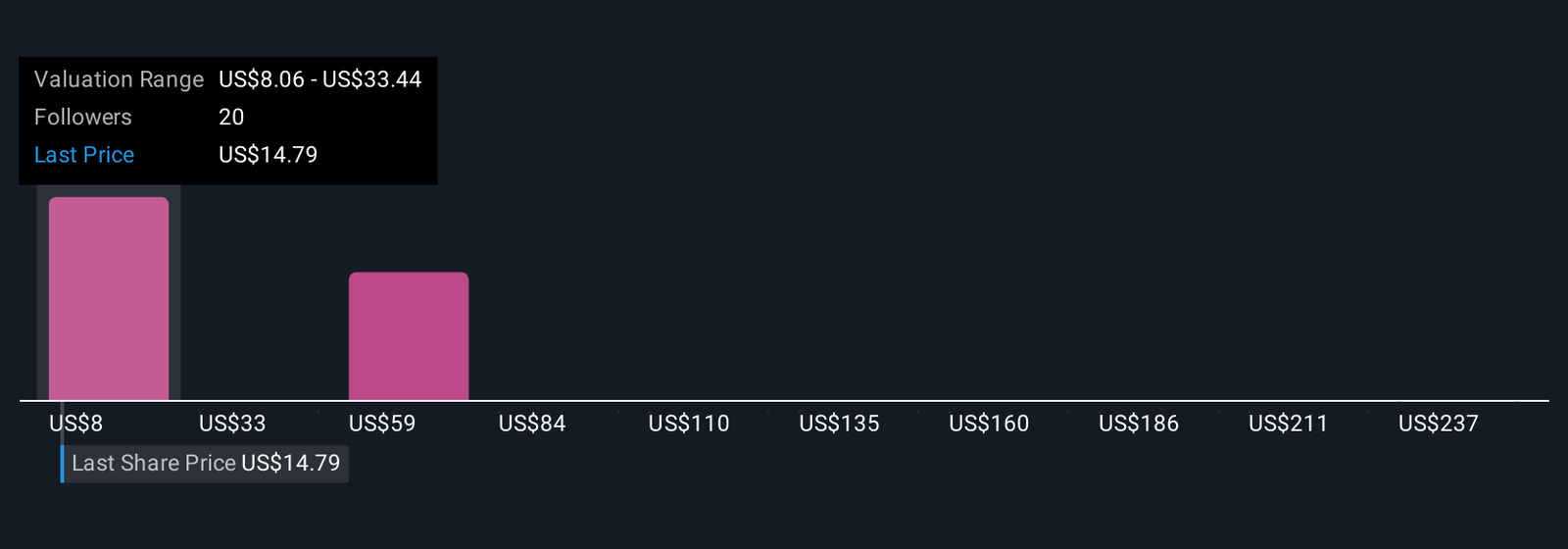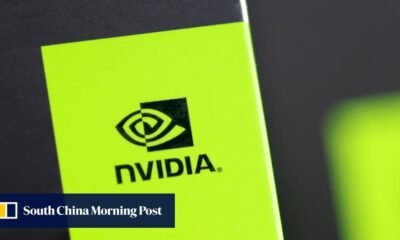Tools & Platforms
Samsung Tackles Chip Challenges with AI Investments and Foldable Tech

In the rapidly evolving world of semiconductors, Samsung Electronics Co. is navigating a complex web of challenges and opportunities as it heads into the latter half of 2025. The South Korean tech giant, a key player in memory chips and foundry services, has been grappling with supply chain disruptions and intense competition from rivals like TSMC and Intel. According to a recent report from Samsung Securities, the company faces difficulties in upward earnings revisions for general-purpose semiconductors due to ongoing production controls aimed at accelerating cycle recovery. This caution stems from uncertain capital expenditure (Capex) and utilization rate forecasts, which investors are watching closely for signs of a bottom-out.
Samsung’s strategic investments, however, signal a bold push forward. The company recently held a tool-in ceremony for its new semiconductor R&D complex, NRD-K, set to begin operations this year, with plans to pour about 20 trillion won ($14.8 billion) into advanced R&D by 2030, as detailed in the Samsung Global Newsroom. This move is part of a broader effort to bolster AI-driven semiconductors, where Samsung sees higher earnings visibility amid the global AI boom.
Investors Eye AI as Samsung’s Lifeline Amid Market Pressures
First-quarter 2025 results underscored both strengths and vulnerabilities, with Samsung reporting revenue of 79.14 trillion won and operating profit of 6.7 trillion won, per the company’s own announcements in the Samsung Global Newsroom. Yet, shareholders have pressed for growth strategies, leading CEO Kyung Kye-hyun to hint at pursuing major mergers and acquisitions this year to counter underperformance in tech stocks, as covered by Reuters. The failure to fully capitalize on AI has been a sore point, with Samsung’s foundry business posting losses of $3.6 billion in the first half of the year, though a $16.5 billion deal with Tesla for AI chips starting in 2027 offers a glimmer of hope, according to posts circulating on X from industry analysts.
Beyond semiconductors, Samsung is innovating in consumer devices to diversify revenue. The foldable smartphone segment is heating up, with the company planning to strengthen its lineup, including the rumored Galaxy G-Fold tri-fold phone slated for a late-2025 launch, as revealed in leaks reported by Geeky Gadgets. This comes amid growing competition from Huawei and Google, with market overviews from Coherent Market Insights forecasting robust industry growth through 2032.
Strategic Shifts in Foundry and Packaging Technologies
Samsung’s ambitions extend to advanced packaging, where it’s exploring Intel’s hybrid bonding technology to enhance chip density and efficiency, as noted in recent X posts from tech enthusiasts like Techo Vedas. This could position Samsung better against TSMC, whose 2nm process is eyeing mass production in Q4 2025 with a monthly capacity of 100,000 wafers by 2026, according to semiconductor news aggregated on X by inni world. Meanwhile, Samsung’s own 2nm advancements are crucial for reclaiming market share, especially as global wafer foundry revenue surged 14.6% to $41.7 billion in Q2, with TSMC dominating over 70% of the market.
The company’s mobile division is also adapting, with expectations for a delayed flagship processor launch and expanded Galaxy AI features across premium devices, as outlined in X updates from insider Anthony. Price increases for components and a focus on thinner, redesigned foldables aim to counter Apple’s rumored 2026 entry into the foldable arena, per Business Insider.
Geopolitical Tensions and Supply Chain Resilience
Geopolitical factors add another layer of complexity. China’s record chip exports of $89.85 billion in the first seven months of 2024, despite U.S. sanctions, highlight shifting dynamics that could pressure Samsung, as discussed in X posts by Barrett. Samsung’s response includes bolstering domestic capabilities, such as the joint task force for a Galaxy-only chip by 2025, echoing earlier strategies reported in X threads from Anthony dating back to 2022.
Looking ahead, Samsung’s semiconductor outlook hinges on AI recovery evidence, with traditional equipment investments poised to rebound once cycle improvements materialize, per the Sourceability analysis. The resolution of excess inventory is paving the way for growth, but challenges like Intel’s Arrow Lake setbacks and Huawei’s R&D surges, as per X semiconductor news from inni world, underscore the need for agility.
Innovation Beyond Chips: Foldables and Emerging Tech
In foldables, Samsung’s Galaxy Z Fold 7 and Flip models are stacking up well against competitors like Motorola and Google, with expert reviews from ZDNet praising next-gen features. The tri-fold Galaxy G-Fold, detailed in Gadget Hacks, promises to redefine multitasking with its expansive
Tools & Platforms
New AI Partnerships Could Be a Game Changer for DXC Technology (DXC)

- DXC Technology recently announced partnerships with startups Acumino, CAMB.AI, and GreenMatterAI to advance AI solutions in the automotive and manufacturing industries, focusing on smart factory robotics, real-time speech translation, and synthetic data projects.
- This collaboration, made as part of the STARTUP AUTOBAHN initiative, highlights DXC’s commitment to transforming emerging technology into practical industry impact by accelerating AI adoption.
- We’ll examine how these new AI partnerships could reshape DXC Technology’s investment narrative and long-term prospects in digital transformation.
Outshine the giants: these 26 early-stage AI stocks could fund your retirement.
DXC Technology Investment Narrative Recap
To be a shareholder in DXC Technology today, you need to believe that the company’s efforts in digital transformation and AI can counter persistent revenue declines and revive organic growth. While the new partnerships with Acumino, CAMB.AI, and GreenMatterAI showcase momentum in AI, the immediate effect on stabilizing short-term revenues or addressing the ongoing decline in the GIS segment is likely to be modest, given the inherent scale and timing of these projects.
Of recent announcements, DXC’s deal to create the DXC Agentic Security Operations Center with 7AI stands out as especially relevant alongside the new automotive and manufacturing AI partnerships. This reflects a deepening focus on expanding digital offerings through AI-driven solutions, which underpins the most important catalyst for the stock: improved client demand and bookings growth from digital modernization, even as near-term performance remains pressured.
However, investors should not overlook that, despite these innovation efforts, persistent challenges in revenue and margin stabilization continue to weigh on the company’s outlook, especially if…
Read the full narrative on DXC Technology (it’s free!)
DXC Technology’s outlook projects $12.1 billion in revenue and $208.6 million in earnings by 2028. This implies a 1.7% annual revenue decline and a $170.4 million decrease in earnings from the current $379.0 million.
Uncover how DXC Technology’s forecasts yield a $15.12 fair value, in line with its current price.
Exploring Other Perspectives
Six Simply Wall St Community members estimate DXC’s fair value between US$8.06 and US$261.89, indicating significant differences in growth assumptions. Balance these viewpoints with persistent risks to revenue and backlog conversion that could impact near-term earnings and investor sentiment.
Explore 6 other fair value estimates on DXC Technology – why the stock might be worth 46% less than the current price!
Build Your Own DXC Technology Narrative
Disagree with existing narratives? Create your own in under 3 minutes – extraordinary investment returns rarely come from following the herd.
Interested In Other Possibilities?
Opportunities like this don’t last. These are today’s most promising picks. Check them out now:
This article by Simply Wall St is general in nature. We provide commentary based on historical data
and analyst forecasts only using an unbiased methodology and our articles are not intended to be financial advice. It does not constitute a recommendation to buy or sell any stock, and does not take account of your objectives, or your
financial situation. We aim to bring you long-term focused analysis driven by fundamental data.
Note that our analysis may not factor in the latest price-sensitive company announcements or qualitative material.
Simply Wall St has no position in any stocks mentioned.
New: Manage All Your Stock Portfolios in One Place
We’ve created the ultimate portfolio companion for stock investors, and it’s free.
• Connect an unlimited number of Portfolios and see your total in one currency
• Be alerted to new Warning Signs or Risks via email or mobile
• Track the Fair Value of your stocks
Have feedback on this article? Concerned about the content? Get in touch with us directly. Alternatively, email editorial-team@simplywallst.com
Tools & Platforms
Will Sea Dagger’s AI-Driven Tech Shift Leidos Holdings’ (LDOS) Role in Government Defense Contracts?

- Leidos recently unveiled the Sea Dagger, a next-generation Commando Insertion Craft for the Royal Navy, featuring high speed, modular mission systems, and autonomous technologies tailored for modern maritime operations.
- This unveiling positions Leidos as a prominent innovator in advanced maritime defense solutions, aligning with major UK and AUKUS defense modernization priorities.
- We’ll explore how the Sea Dagger launch, leveraging autonomy and AI, could shape Leidos Holdings’ government contract growth outlook.
Trump’s oil boom is here – pipelines are primed to profit. Discover the 22 US stocks riding the wave.
Leidos Holdings Investment Narrative Recap
To be a shareholder in Leidos Holdings, you need confidence in the company’s ability to capture long-term government spending on defense modernization and advanced technology, while managing its reliance on large public sector contracts. The announcement of Sea Dagger enhances Leidos’ credentials in maritime autonomy and aligns with top spending priorities, but gives only an incremental boost to near-term government contract momentum, which remains the company’s key catalyst. The largest risk continues to be shifts in government funding priorities, which could disrupt expected revenue growth if budgets tighten.
Among recent developments, Leidos winning a $128 million FBI task order for agile software development illustrates how its expertise in secure, high-tech government solutions is translating into new business opportunities. This aligns with the same digital innovation and defense modernization themes seen in the Sea Dagger project, further supporting the company’s biggest catalyst: continued multi-year growth in national security and technology contracts.
Yet, despite these advances, if defense spending priorities change faster than expected, investors need to be aware that…
Read the full narrative on Leidos Holdings (it’s free!)
Leidos Holdings is projected to reach $18.6 billion in revenue and $1.5 billion in earnings by 2028. This outlook requires a 3.0% annual revenue growth rate and a $0.1 billion increase in earnings from the current $1.4 billion.
Uncover how Leidos Holdings’ forecasts yield a $186.69 fair value, a 4% upside to its current price.
Exploring Other Perspectives
Eight fair value estimates from the Simply Wall St Community range from US$102 to US$285.81. While high expectations for government modernization support optimism, investor forecasts remind you opinions vary widely and signal multiple possible outcomes for Leidos’ future.
Explore 8 other fair value estimates on Leidos Holdings – why the stock might be worth as much as 60% more than the current price!
Build Your Own Leidos Holdings Narrative
Disagree with existing narratives? Create your own in under 3 minutes – extraordinary investment returns rarely come from following the herd.
Ready To Venture Into Other Investment Styles?
Early movers are already taking notice. See the stocks they’re targeting before they’ve flown the coop:
This article by Simply Wall St is general in nature. We provide commentary based on historical data
and analyst forecasts only using an unbiased methodology and our articles are not intended to be financial advice. It does not constitute a recommendation to buy or sell any stock, and does not take account of your objectives, or your
financial situation. We aim to bring you long-term focused analysis driven by fundamental data.
Note that our analysis may not factor in the latest price-sensitive company announcements or qualitative material.
Simply Wall St has no position in any stocks mentioned.
New: AI Stock Screener & Alerts
Our new AI Stock Screener scans the market every day to uncover opportunities.
• Dividend Powerhouses (3%+ Yield)
• Undervalued Small Caps with Insider Buying
• High growth Tech and AI Companies
Or build your own from over 50 metrics.
Have feedback on this article? Concerned about the content? Get in touch with us directly. Alternatively, email editorial-team@simplywallst.com
Tools & Platforms
AI giant Anthropic to pay $1.5 bn over pirated books

Anthropic will pay at least $1.5 billion to settle a US class action lawsuit over allegedly using pirated books to train its artificial intelligence models, according to court documents filed Friday.
“This landmark settlement far surpasses any other known copyright recovery,” said plaintiffs’ attorney Justin Nelson. “It is the first of its kind in the AI era.”
The settlement stems from a class-action lawsuit filed by authors Andrea Bartz, Charles Graeber, and Kirk Wallace Johnson, who accused Anthropic of illegally copying their books to train Claude, the company’s AI chatbot that rivals ChatGPT.
In a partial victory for Anthropic, US District Court Judge William Alsup ruled in June that the company’s training of its Claude AI models with books—whether bought or pirated—so transformed the works that it constituted “fair use” under the law.
“The technology at issue was among the most transformative many of us will see in our lifetimes,” Alsup wrote in his decision, comparing AI training to how humans learn by reading books.
However, Alsup rejected Anthropic’s bid for blanket protection, ruling that the company’s practice of downloading millions of pirated books to build a permanent digital library was not justified by fair use protections.
“We remain committed to developing safe AI systems that help people and organizations extend their capabilities, advance scientific discovery, and solve complex problems,” Anthropic deputy general counsel Aparna Sridhar said in response to an AFP inquiry.
San Francisco-based Anthropic announced this week that it raised $13 billion in a funding round valuing the AI startup at $183 billion.
Anthropic competes with generative artificial intelligence offerings from Google, OpenAI, Meta, and Microsoft in a race that is expected to attract hundreds of billions of dollars in investment over the next few years.
Thousands of books
According to the legal filing, the settlement covers approximately 500,000 books, translating to roughly $3,000 per work—four times the minimum statutory damages under US copyright law.
Under the agreement, Anthropic will destroy the original pirated files and any copies made, though the company retains rights to books it legally purchased and scanned.

“This settlement sends a strong message to the AI industry that there are serious consequences when they pirate authors’ works to train their AI, robbing those least able to afford it,” said Mary Rasenberger, CEO of the Authors Guild, in a statement supporting the deal.
The settlement, which requires judicial approval, comes as AI companies face growing legal pressure over their training practices.
A US judge in June handed Meta a victory over authors who accused the tech giant of violating copyright law by training Llama AI on their creations without permission.
District Court Judge Vince Chhabria in San Francisco ruled that Meta’s use of the works to train its AI model was “transformative” enough to constitute “fair use” under copyright law.
Apple Intelligence
Meanwhile, Apple on Friday was targeted with a lawsuit by a pair of US authors accusing the iPhone maker of using pirated books to train generative AI built into its lineup of devices.
The tech titan’s suite of capabilities called “Apple Intelligence” is part of a move to show it is not being left behind in the AI race.
“To train the generative-AI models that are part of Apple Intelligence, Apple first amassed an enormous library of data,” read the suit.
“Part of Apple’s data library includes copyrighted works—including books created by plaintiffs—that were copied without author consent, credit, or compensation.”
Apple “scraped” works from sources including “shadow libraries” stocked with pirated books, the suit contends.
Apple did not immediately reply to a request for comment.
The suit filed against Apple by Grady Hendrix, author of “My Best Friend’s Exorcism,” and Jennifer Roberson of Arizon, whose books include “Sword-Bound,” seeks class action status.
© 2025 AFP
Citation:
AI giant Anthropic to pay $1.5 bn over pirated books (2025, September 6)
retrieved 6 September 2025
from https://techxplore.com/news/2025-09-ai-giant-anthropic-pay-bn.html
This document is subject to copyright. Apart from any fair dealing for the purpose of private study or research, no
part may be reproduced without the written permission. The content is provided for information purposes only.
-

 Business1 week ago
Business1 week agoThe Guardian view on Trump and the Fed: independence is no substitute for accountability | Editorial
-
Tools & Platforms4 weeks ago
Building Trust in Military AI Starts with Opening the Black Box – War on the Rocks
-

 Ethics & Policy1 month ago
Ethics & Policy1 month agoSDAIA Supports Saudi Arabia’s Leadership in Shaping Global AI Ethics, Policy, and Research – وكالة الأنباء السعودية
-

 Events & Conferences4 months ago
Events & Conferences4 months agoJourney to 1000 models: Scaling Instagram’s recommendation system
-

 Jobs & Careers2 months ago
Jobs & Careers2 months agoMumbai-based Perplexity Alternative Has 60k+ Users Without Funding
-

 Education2 months ago
Education2 months agoVEX Robotics launches AI-powered classroom robotics system
-

 Podcasts & Talks2 months ago
Podcasts & Talks2 months agoHappy 4th of July! 🎆 Made with Veo 3 in Gemini
-

 Funding & Business2 months ago
Funding & Business2 months agoKayak and Expedia race to build AI travel agents that turn social posts into itineraries
-

 Education2 months ago
Education2 months agoMacron says UK and France have duty to tackle illegal migration ‘with humanity, solidarity and firmness’ – UK politics live | Politics
-

 Podcasts & Talks2 months ago
Podcasts & Talks2 months agoOpenAI 🤝 @teamganassi













